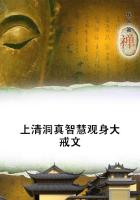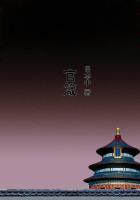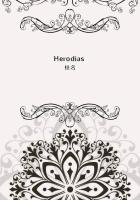Editor in continuation:
I am again, for this and the following chapter, compelled to resume the pen in my own person, and quit the more agreeable office of a transcriber for my illustrious patroness.
I have already mentioned that the Princesse de Lamballe, on first returning from England to France, anticipated great advantages from the recall of the emigrants. The desertion of France by so many of the powerful could not but be a deathblow to the prosperity of the monarchy.
There was no reason for these flights at the time they began. The fugitives only set fire to the four quarters of the globe against their country. It was natural enough that the servants whom they had left behind to keep their places should take advantage of their masters' pusillanimity, and make laws to exclude those who had, uncalled for, resigned the sway into bolder and more active hands.
I do not mean to impeach the living for the dead; but, when we see those bearing the lofty titles of Kings and Princesses, escaping with their wives and families, from an only brother and sister with helpless infant children, at the hour of danger, we cannot help wishing for a little plebeian disinterestedness in exalted minds.
I have travelled Europe twice, and I have never seen any woman with that indescribable charm of person, manner, and character, which distinguished Marie Antoinette. This is in itself a distinction quite sufficient to detach friends from its possessor through envy. Besides, she was Queen of France, the woman of highest rank in a most capricious, restless and libertine nation. The two Princesses placed nearest to her, and who were the first to desert her, though both very much inferior in personal and mental qualifications, no doubt, though not directly, may have entertained some anticipations of her place. Such feelings are not likely to decrease the distaste, which results from comparisons to our own disadvantage. It is, therefore, scarcely to be wondered at, that those nearest to the throne should be least attached to those who fill it. How little do such persons think that the grave they are thus insensibly digging may prove their own! In this case it only did not by a miracle. What the effect of the royal brothers' and the nobility's remaining in France would have been we can only conjecture. That their departure caused, great and irreparable evils we know; and we have good reason to think they caused the greatest. Those who abandon their houses on fire, silently give up their claims to the devouring element. Thus the first emigration kindled the French flame, which, though for a while it was got under by a foreign stream, was never completely, extinguished till subdued by its native current.
The unfortunate Louis XVI. and Marie Antoinette ceased to be Sovereigns from the period they were ignominiously dragged to their jail at the Tuileries. From this moment they were abandoned to the vengeance of miscreants, who were disgracing the nation with unprovoked and useless murders. But from this moment also the zeal of the Princesses Elizabeth and de Lamballe became redoubled. Out of one hundred individuals and more, male and female, who had been exclusively occupied about the person of Marie Antoinette, few, excepting this illustrious pair, and the inestimable Clery, remained devoted to the last. The saint-like virtues of these Princesses, malice itself has not been able to tarnish. Their love and unalterable friendship became the shield of their unfortunate Sovereigns, and their much injured relatives, till the dart struck their own faithful bosoms. Princes of the earth! here is a lesson of greatness from the great.
Scarcely had the Princesse de Lamballe been reinstated in the Pavilion of Flora at the Tuileries, when, by the special royal command, and in Her Majesty's presence, she wrote to most of the nobility, entreating their return to France. She urged them, by every argument, that there was no other means of saving them and their country from the horrors impending over them and France, should they persevere in their pernicious absence.
In some of these letters, which I copied, there was written on the margin, in the Queen's hand, "I am at her elbow, and repeat the necessity of your returning, if you love your King, your religion, your Government, and your country. Marie Antoinette. Return! Return! Return!"Among these letters, I remember a large envelope directed to the Duchesse de Brisac, then residing alternately at the baths of Albano and the mineral waters at Valdagno, near Vicenza, in the Venetian States. Her Grace was charged to deliver letters addressed to Her Majesty's royal brothers, the Comte de Provence, and the Comte d'Artois, who were then residing, I think, at Stra, on the Brenta, in company with Madame de Polcatre, Diane de Polignac, and others.
A few days after, I took another envelope, addressed to the Count Dufour, who was at Turin. It contained letters for M. and Madame de Polignac, M. and Madame de Guiche Grammont, the King's aunts at Rome, and the two Princesses of Piedmont, wives of His Majesty's brothers.














